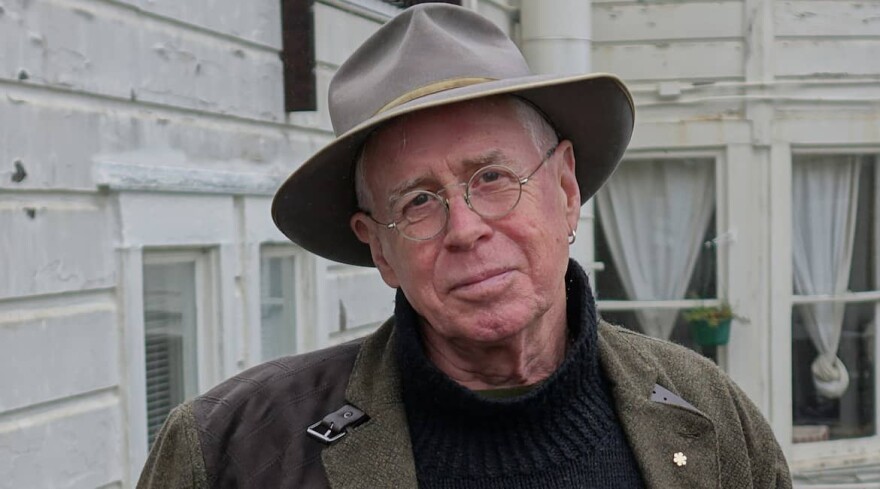Bruce Cockburn doesn’t mince words when it comes to honors. “As long as it doesn’t mean you’re supposed to be dead,” he deadpans about his induction into the Canadian Songwriters Hall of Fame. The prolific songwriter has racked up awards, albums, and accolades for decades, but don’t expect him to get misty-eyed over career milestones. “It’s not something I spend very much time thinking about,” he admits, “but it’s nice to be recognized. I think we’ll probably have a pretty good evening.”
That’s classic Cockburn—equal parts cerebral and sardonic, always more interested in the work itself than the industry’s back-pats. Which makes his memoir, Rumours of Glory, such an anomaly: 600+ pages of soul excavation that ends with his 2010 return from Baghdad and a deliberate lack of closure. “The story ends then,” he says. “But the life goes on.”
The memoir gave him room to process his spiritual and artistic evolution—but not, as he’s quick to clarify, to reset it. “I wouldn’t call it a clean slate,” he explains. “But there was satisfaction in putting it together, to have my spiritual understanding cataloged to date.”
His songwriting, he says, has always been about “leaving a trail.” The book merely consolidates that trail, in case anyone missed the message embedded in the music: “If anybody didn’t get it in the songs, they’ll get it in the book.”
His 33rd album, Bone on Bone, extends that trail into rockier terrain. It’s deeply spiritual but rooted in contemporary despair. “It’s about being a person in this increasingly crazy world,” Cockburn says, with the weariness of someone who’s been watching that world unravel for a while. But don’t mistake it for polemic. “The songs are personal, the same way they’ve always been,” he insists.
One such song, “3 Al Purdy’s,” is the result of a near-crisis. After finishing his memoir, Cockburn hadn’t written a song in three years. “I thought, maybe songwriting’s over for me,” he admits. It took a documentary about the revered Canadian poet Al Purdy to knock something loose. “I was invited to contribute a song. Saying yes meant I had to write something. It was the kickstarter back into the song game.”
The resulting song imagines a street-corner ranter reciting Purdy’s poetry to passersby: “I’ll give you three Al Purdy’s for a twenty-dollar bill.” It’s classic Cockburn—compassionate, vivid, and political by proximity, not intention. “It just came at the right time,” he says. “And then the rest of the songs followed.”
Cockburn’s work often gets tangled in that weird Venn diagram of faith and politics—especially from American fans, who tend to assume religion means conservatism. “We have to be very wary of that kind of connection,” he warns. “People confuse religious principles with social custom, with their own anger, with power. But if you start from a place of compassion, it changes everything.”
Despite the darkness, he’s not discouraged. “I get bummed out every time I read a headline,” he admits. “But I also think, how can I take this event and boil it down into a theme we can address in the music?”
That internal engine—equal parts outrage and introspection—has powered 33 albums. And if Glen Campbell could knock out 70, Cockburn sees no reason to stop. “I guess if I last as long as he did,” he laughs, “I’ve got nine more years to catch up.”
Listen to the interview above and then check out "States I'm In" below.


